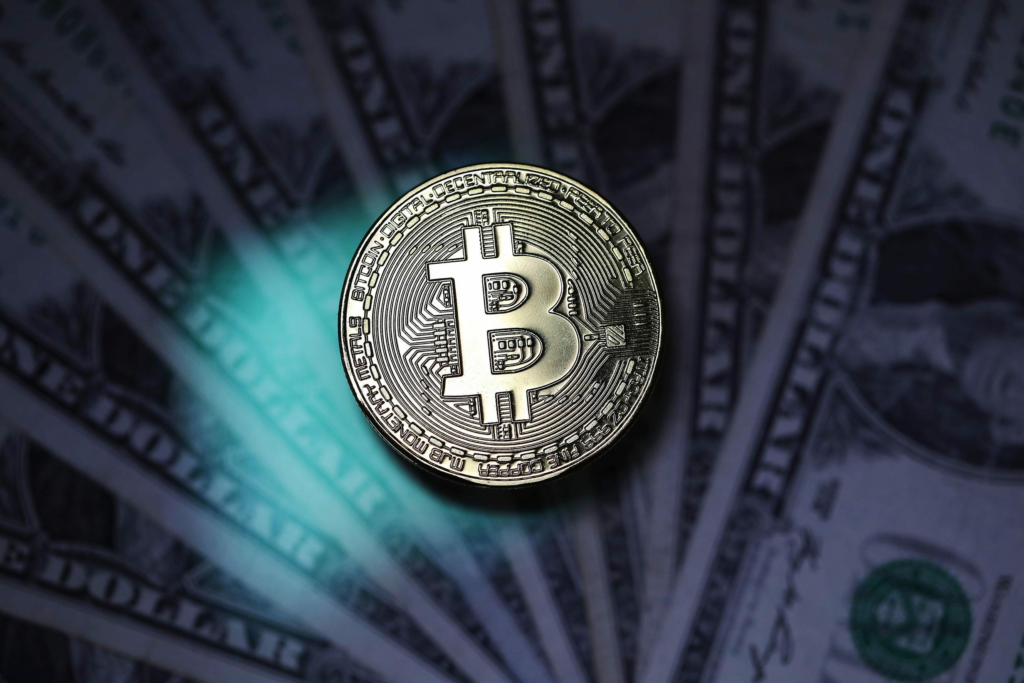LONDON, ENGLAND – DECEMBER 07: A visual representation of the digital Cryptocurrency, Bitcoin … [+]
After a rollercoaster-y start to July, crypto casts another glimmer of hope.
The price of bitcoin jumped 11.3% while the ethereum price skyrocketed a mind-boggling 45.1% over the past week. Meanwhile, XRP XRP XRP is up 15.6%, cardano 12.9%, dogecoin 9.1%, BNB BNB BNB 17.1%, solana 34.5%, and luna 6.5%.
Is this rebound a prelude to the next major rally or just a “dead cat bounce”?
Last week, Forbes picked the brain of Thomas Peterffy, the billionaire founder of Interactive Brokers, about where the market is headed. Asked about crypto, Peterffy expressed grave concerns over regulation and inflation, which can squash digital assets.
“I think chances are very high that [crypto] will become worthless or outlawed,” Peterffy told Forbes. But while the billionaire views digital assets with caution, he doesn’t write them off as an asset class just yet.
Zooming Out
Regulation is one of the biggest headwinds that can blow off crypto this year.
Last month, the Senate introduced the bipartisan Responsible Financial Innovations Act. As the most landmark crypto bill to date, it aims to classify cryptos into securities and commodities and regulate them as traditional assets. It also wants to root out stablecoins that aren’t backed by dollars or Treasuries.
Overseas, the EU reached a deal on a set of crypto rules named Markets in Crypto-Assets (MiCA). Just like US watchdogs, the EU is planning to eradicate all unbacked stablecoins.
As I wrote in my last blog: “The EU is seeking to ban all stablecoins that aren’t backed by a liquid reserve at a 1-to-1 ratio and don’t have a presence in the EU. The holders of compliant stablecoins will also have a right to redeem their tokens free of charge at any time.”
In a separate provisional deal, the European Parliament also agreed to impose the same reporting standard on crypto that traditional assets are subjected to—all to make sure crypto transactions are traceable “from the first euro sent.”
Regulation isn’t the only wrench that can be thrown into crypto’s wheels. Peterffy thinks the global economy will face sustained inflation in the long run. As Forbes’s John Hyatt reported:
“According to Peterffy, who is worth $18.1 billion, there are several reasons why inflation is here to stay: decades of chronic U.S. deficit spending; ongoing disruption in supply chains as globalization “reverses”; a shortage of skilled workers and increasing automation; companies’ self-imposed ESG (environmental, social and governance) requirements that “raise costs of production”; and, paradoxically, rising interest rates, the very mechanism intended to curb inflation.”
As a supposed hedge against fiat debasement, crypto should thrive in such an environment. But so far, it’s acted more like a high beta asset class that’s increasingly correlated with inflation-sensitive tech stocks.
As I wrote last month: “Major cryptos are highly correlated to the stock market. They also have a high beta to stocks. That means crypto, in effect, amplifies stock moves. If stocks soar, cryptos soar higher. And vice versa. If stocks tumble, crypto goes into free fall. Not only that, both the correlation and beta have significantly increased since the beginning of the pandemic [according to the IMF]
If inflation persists as Peterffy predicts and crypto doesn’t “decorrelate” from tech stocks, digital assets are likely to see more red in the second half of this year.
Looking Ahead—”Playing the Odds”
So, when will crypto bottom out? Should you buy into this asset class, and if so, how much?
Peterffy expects the worst is still ahead of us. He thinks risk assets will see further downside, with the S&P 500 potentially falling to as low as $3,000. Still, the billionaire admits to holding bitcoin, and will buy more if it drops to $12,000.
As for how much, earlier this year, Peterffy advised to allocate at least 2-3% of your wealth in crypto in case fiat currencies “go to hell.” As he reasoned, “There’s a small chance that this will be a dominant currency, so you have to play the odds.”
Stay ahead of the crypto trends with Meanwhile in Markets. Every day, I put out a story that explains what’s driving the crypto markets. Subscribe here to get my analysis and crypto picks in your inbox.
Author
Administraroot


